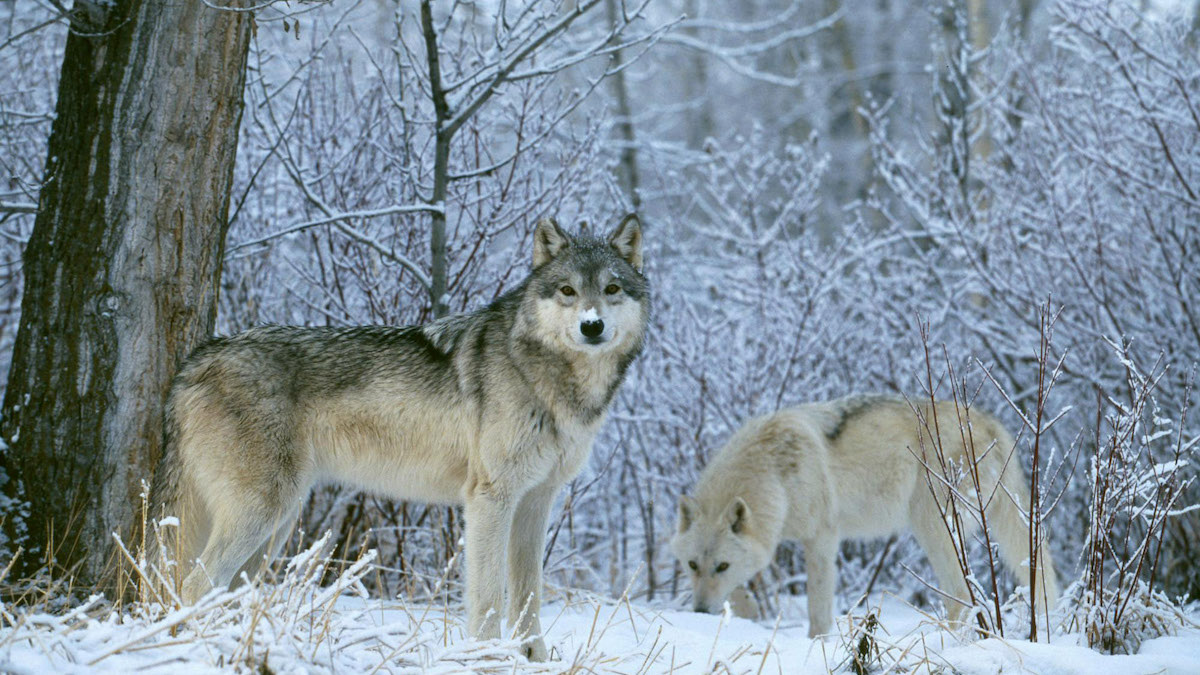Hunters and Trappers Hit Wisconsin Wolf Quota in Two Days

In a blisteringly fast effort, sportsmen and women in Wisconsinharvested 162 wolvesas of Wednesday morning—43 more than the target set at 119. All units opened on Monday, Feb. 22 and closed Wednesday at 3:00 p.m.
After wolves wereremoved from the Endangered Species Listacross the Lower 48 in January, Wisconsin moved toward hosting their first wolf season since 2014 in the fall of 2021. However, a lawsuit by Hunter Nation won a court order that forced the state to hold that season before the end of February.
Wisconsinites hit the woods with calls, hounds, and traps and in short order they exceeded the targets set in all but one area of the state. Biologists estimated there to be approximately 1,000 wolves in the state prior to this hunt,according to theAssociated Press, but the DNR’s population goal is much lower at 350 individuals.
While this hunting opportunity was supported in rural areas of Wisconsin concerned about wolves killing deer, livestock, and pets, it has been the target of fierce opposition from animal rights and anti-hunting groups.
President Biden has ordered a review of the Trump-era delisting of wolves, which some suggest was the impetus to hold this hunt before the fall. Wolves have come and gone from the Endangered Species List several times in recent decades and may again fall under federal protection.
Dave Mabie is a houndsman from Northern Wisconsin who got his dogs out for this season, though without a tag of his own. His partner harvested a 90-pound wolf.
“It’s been incredible weather this week and that made a difference,” Mabie told MeatEater. “A week ago, it was 40 below one morning, so if that had been this week it obviously wouldn’t have been over in two days. We had fresh snow yesterday morning and this morning and that’s ideal. That obviously contributed to the success of the hunt.”
Mabie said that 28,000 people applied for 4,000 wolf tags this season, which he believes was encouraged by the possibility of the political winds shifting for wolf hunters once again. He said locals in his area are overwhelmingly supportive of wolf management.
“Yesterday, I’m sitting on the road and there were a lot of people that drove past us and gave us a thumbs up,” Mabie said. “They knew what we were doing. They knew what’s going on and the local population around where I hunt is definitely glad to see this. I mean, people are tired of getting their pets and cows and chickens and everything else killed by wolves.”
However, even hunters were somewhat divided on the wisdom of holding this season on a short timeline. Adrian Wydeven is a retired wolf biologist for the Wisconsin DNR and the chair of theTimber Wolf AllianceCouncil. He expects the fully-tabulated harvest to more than double the established quota.
“I am very much in favor of a well-regulated wolf hunting and trapping season, but unfortunately the rush into the wolf harvest conducted this winter was anything but a well regulated harvest,” Wydeven told MeatEater.
He said the most recent hunts in 2012, ’13, and ’14 hewed much closer to the quota because hound hunting (which is only allowed after deer season ends in late November) was less of a factor. He estimates that hounds accounted for some 90% of the harvest this year and were the main reason the target was surpassed so quickly. It remains to be seen what impact this mid-winter hunt in the wolf breeding season will have, Wydeven said.
“Overall the wolf harvest was driven mainly by politics and court order, but had limited opportunity to use good science, public involvement, and ignored concerns [of] the tribes,” he said. “For those of us who want to keep wolves off the endangered species list, such poor wildlife governance is not useful.”
When the next wolf season will occur in the Great Lakes Region is anyone’s guess, though the Wisconsin DNR currently plans to hold another in November. There are currently competing bills in the Minnesota legislature to both establish a wolf season and ban wolf hunting in that state, according toE&E News.
Hunters and trappers are responsible to know that these seasons are now closed in Wisconsin, and violations carry a fine of $303.30.
Shop
Sign In or Create a Free Account
Related

Wildlife Management
New Details and Images Emerge in Wisconsin Deer Poaching, Torture Case

Wildlife Management
Did CWD Kill Two Unnamed Hunters? Probably Not.




